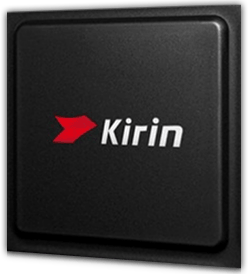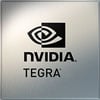
HiSilicon Kirin 980 Benchmark, Test and specs
Last updated:
The HiSilicon Kirin 980 has 8 CPU cores and can process 8 threads at the same time. The processor was presented in Q4/2018 and is based on the 7. Generation of the HiSilicon Kirin series. In the Geekbench 5 benchmark, the HiSilicon Kirin 980 achieved a result of 681 points (single-core) or 2,576 points (multi-core).

| Name: | HiSilicon Kirin 980 |
|---|---|
| Family: | HiSilicon Kirin (29) |
| CPU group: | HiSilicon Kirin 980 (2) |
| Architecture: | Cortex-A76 / Cortex-A55 |
| Segment: | Mobile |
| Generation: | 7 |
| Predecessor: | -- |
| Successor: | -- |
CPU Cores and Base Frequency
The HiSilicon Kirin 980 has 8 cores. The clock frequency of the HiSilicon Kirin 980 is 2.60 GHz. An initial performance assessment can be made using the number of CPU cores.
| CPU Cores / Threads: | 8 / 8 |
|---|---|
| Core architecture: | hybrid (Prime / big.LITTLE) |
| A-Core: | 2x Cortex-A76 |
| B-Core: | 2x Cortex-A76 |
| C-Core: | 4x Cortex-A55 |
| Hyperthreading / SMT: | No |
|---|---|
| Overclocking: | No |
| A-Core Frequency: | 2.60 GHz |
| B-Core Frequency: | 1.92 GHz |
| C-Core Frequency: | 1.80 GHz |
Internal Graphics
The HiSilicon Kirin 980 has an integrated graphics that the system can use to efficiently play back videos. The HiSilicon Kirin 980 has the ARM Mali-G76 MP10 installed, which has 10 streaming multiprocessors (160 shaders).
| GPU name: | ARM Mali-G76 MP10 |
|---|---|
| GPU frequency: | 0.72 GHz |
| GPU (Turbo): | No turbo |
| Compute units: | 10 |
| Shader: | 160 |
| Hardware Raytracing: | No |
| Release date: | Q3/2018 |
| Max. displays: | 2 |
|---|---|
| Generation: | Bifrost 3 |
| Direct X: | 12 |
| Technology: | 7 nm |
| Max. GPU Memory: | 4 GB |
| Frame Generation: | No |
Hardware codec support
Processors with integrated graphics can process video codecs faster. Support for modern codecs can significantly increase system efficiency during video playback.
| h265 / HEVC (8 bit): | Decode / Encode |
|---|---|
| h265 / HEVC (10 bit): | Decode / Encode |
| h264: | Decode / Encode |
| VP8: | Decode / Encode |
| VP9: | Decode / Encode |
| AV1: | No |
|---|---|
| AVC: | Decode / Encode |
| VC-1: | Decode / Encode |
| JPEG: | Decode / Encode |
Memory & PCIeThe HiSilicon Kirin 980 supports a maximum of 8 GB memory. Depending on the mainboard, the processor can use a maximum of 4 (Quad Channel) memory channels. This results in a maximum bandwidth of the main memory of --. |
|
| Memory type: | Memory bandwidth: |
|---|---|
| LPDDR4X-2133 | -- |
| Max. Memory: | 8 GB |
| Memory channels: | 4 (Quad Channel) |
| ECC: | No |
| PCIe: | |
| PCIe Bandwidth: | -- |
Thermal ManagementThe HiSilicon Kirin 980 has a TDP of 6 W. Based on the TDP, the system manufacturer can and must adapt the cooling solution to the processor. |
|
|---|---|
| TDP (PL1 / PBP): | 6 W |
| TDP (PL2): | -- |
| TDP up: | -- |
| TDP down: | -- |
| Tjunction max.: | -- |
Technical details
Modern production reduces the waste heat of a processor and increases its efficiency. The HiSilicon Kirin 980 is made in 7 nm and has 2.00 MB cache.
| Technology: | 7 nm |
|---|---|
| Chip design: | Chiplet |
| Socket: | -- |
| L2-Cache: | -- |
| L3-Cache: | 2.00 MB |
| AES-NI: | No |
| Operating systems: | Android |
| Virtualization: | None |
|---|---|
| Instruction set (ISA): | Armv8-A (64 bit) |
| ISA extensions: | -- |
| Release date: | Q4/2018 |
| Release price: | -- |
| Part Number: | -- |
| Documents: | -- |
Rate this processor
Benchmark results

The benchmark results for the HiSilicon Kirin 980 have been carefully checked by us. We only publish benchmark results that have been created by us or that have been submitted by a visitor and then checked by a team member. All results are based on and fullfill our benchmark guidelines.
Geekbench 5, 64bit (Single-Core)
Geekbench 5 is a cross plattform benchmark that heavily uses the systems memory. A fast memory will push the result a lot. The single-core test only uses one CPU core, the amount of cores or hyperthreading ability doesn't count.

|
Intel Celeron G3900T
2C 2T @ 2.60 GHz |
||

|
Intel Pentium G3220
2C 2T @ 3.00 GHz |
||

|
Intel Xeon E5-2630 v2
6C 12T @ 3.10 GHz |
||
|
|
HiSilicon Kirin 980
8C 8T @ 2.60 GHz |
||

|
Intel Core i7-5500U
2C 4T @ 3.00 GHz |
||

|
Intel Core i7-5550U
2C 4T @ 3.00 GHz |
||

|
Intel Core i7-4765T
4C 8T @ 3.00 GHz |
||
Geekbench 5, 64bit (Multi-Core)
Geekbench 5 is a cross plattform benchmark that heavily uses the systems memory. A fast memory will push the result a lot. The multi-core test involves all CPU cores and taks a big advantage of hyperthreading.

|
AMD Ryzen 5 3500U
4C 8T @ 3.00 GHz |
||

|
AMD Ryzen 5 3580U
4C 8T @ 3.00 GHz |
||

|
Qualcomm Snapdragon 855
8C 8T @ 2.84 GHz |
||
|
|
HiSilicon Kirin 980
8C 8T @ 2.60 GHz |
||

|
Qualcomm Snapdragon 8c
8C 8T @ 2.45 GHz |
||

|
AMD Ryzen 3 PRO 1200
4C 4T @ 3.30 GHz |
||

|
AMD Ryzen 3 1200
4C 4T @ 3.10 GHz |
||
Geekbench 6 (Single-Core)
Geekbench 6 is a benchmark for modern computers, notebooks and smartphones. What is new is an optimized utilization of newer CPU architectures, e.g. based on the big.LITTLE concept and combining CPU cores of different sizes. The single-core benchmark only evaluates the performance of the fastest CPU core, the number of CPU cores in a processor is irrelevant here.

|
Intel Core i5-4278U
2C 4T @ 3.10 GHz |
||

|
Intel Core i5-4288U
2C 4T @ 3.10 GHz |
||

|
MediaTek Dimensity 900
8C 8T @ 2.40 GHz |
||
|
|
HiSilicon Kirin 980
8C 8T @ 2.60 GHz |
||

|
Intel Core m5-6Y54
2C 4T @ 2.70 GHz |
||

|
AMD Athlon Silver 3050U
2C 2T @ 3.20 GHz |
||

|
Intel Xeon D-1520
4C 8T @ 2.60 GHz |
||
Geekbench 6 (Multi-Core)
Geekbench 6 is a benchmark for modern computers, notebooks and smartphones. What is new is an optimized utilization of newer CPU architectures, e.g. based on the big.LITTLE concept and combining CPU cores of different sizes. The multi-core benchmark evaluates the performance of all of the processor's CPU cores. Virtual thread improvements such as AMD SMT or Intel's Hyper-Threading have a positive impact on the benchmark result.

|
Intel Core i7-4820K
4C 8T @ 3.80 GHz |
||

|
Intel Core i5-6300HQ
4C 4T @ 2.70 GHz |
||

|
Intel Core i5-6350HQ
4C 4T @ 2.70 GHz |
||
|
|
HiSilicon Kirin 980
8C 8T @ 2.60 GHz |
||

|
Samsung Exynos 1380
8C 8T @ 2.40 GHz |
||

|
Intel Core i5-4590T
4C 4T @ 2.50 GHz |
||

|
Intel Core i5-4430S
4C 4T @ 2.70 GHz |
||
iGPU - FP32 Performance (Single-precision GFLOPS)
The theoretical computing performance of the internal graphics unit of the processor with simple accuracy (32 bit) in GFLOPS. GFLOPS indicates how many billion floating point operations the iGPU can perform per second.

|
AMD A10-7700K
AMD Radeon R7 - 384 (Kaveri) @ 0.72 GHz |
||

|
AMD A10-4600M
AMD Radeon HD 7660G @ 0.69 GHz |
||

|
AMD A10-4657M
AMD Radeon HD 7660G @ 0.69 GHz |
||
|
|
HiSilicon Kirin 980
ARM Mali-G76 MP10 @ 0.72 GHz |
||

|
Intel Atom x7433RE
Intel UHD Graphics 32 EUs (Alder Lake) @ 1.00 GHz |
||

|
NVIDIA Tegra X1
NVIDIA Tegra X1 (Maxwell) @ 1.00 GHz |
||

|
Intel Core i5-L16G7
Intel UHD Graphics 12th Gen (64 EU) @ 0.50 GHz |
||
AnTuTu 8 Benchmark
The AnTuTu 8 Benchmark measures the performance of a SoC. AnTuTu benchmarks the CPU, GPU, Memory as well as the UX (User Experience) by simulating browser and app usage. AnTuTu can benchmark any ARM CPU that runs under Android or iOS. Devices may not be directly compareable if the benchmark has been performed under different operating systems.
In the AnTuTu 8 benchmark, the single-core performance of a processor is only slightly weighted. The evaluation consists of the multi-core performance of the processor, the speed of the RAM and the performance of the internal graphics.
In the AnTuTu 8 benchmark, the single-core performance of a processor is only slightly weighted. The evaluation consists of the multi-core performance of the processor, the speed of the RAM and the performance of the internal graphics.

|
Qualcomm Snapdragon 855
8C 8T @ 2.84 GHz |
||

|
MediaTek Dimensity 1000C
8C 8T @ 2.00 GHz |
||

|
Apple A12 Bionic
6C 6T @ 2.49 GHz |
||
|
|
HiSilicon Kirin 980
8C 8T @ 2.60 GHz |
||

|
MediaTek Dimensity 820
8C 8T @ 2.60 GHz |
||
|
|
HiSilicon Kirin 985 5G
8C 8T @ 2.58 GHz |
||

|
MediaTek Kompanio 820
8C 8T @ 2.20 GHz |
||
Benchmarks

Geekbench 5 (SC)
2,488 entries
2,488 entries

Geekbench 5 (MC)
2,461 entries
2,461 entries

Geekbench 6 (SC)
1,755 entries
1,755 entries

Geekbench 6 (MC)
1,703 entries
1,703 entries

FP32 SP (iGPU)
2,042 entries
2,042 entries

AnTuTu 8 Benchmark
118 entries
118 entries
Popular comparisons
back to index





